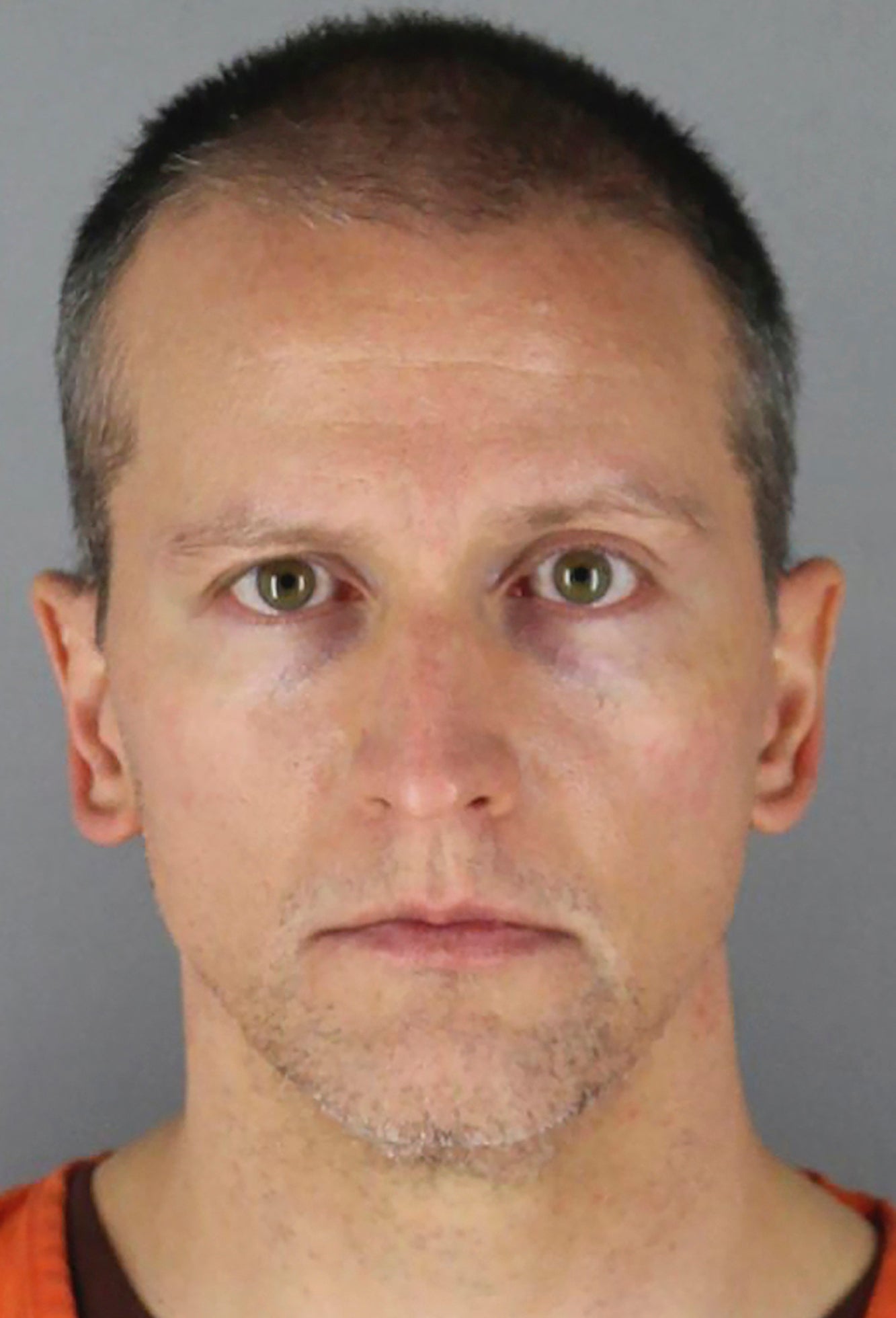Minnesota lawmakers debate security for ex-officers' trials
A partisan dispute over who should pay for reinforcing police during the murder trial of a former Minneapolis officer charged with killing George Floyd is coming to a head

Your support helps us to tell the story
From reproductive rights to climate change to Big Tech, The Independent is on the ground when the story is developing. Whether it's investigating the financials of Elon Musk's pro-Trump PAC or producing our latest documentary, 'The A Word', which shines a light on the American women fighting for reproductive rights, we know how important it is to parse out the facts from the messaging.
At such a critical moment in US history, we need reporters on the ground. Your donation allows us to keep sending journalists to speak to both sides of the story.
The Independent is trusted by Americans across the entire political spectrum. And unlike many other quality news outlets, we choose not to lock Americans out of our reporting and analysis with paywalls. We believe quality journalism should be available to everyone, paid for by those who can afford it.
Your support makes all the difference.A partisan dispute over who should pay for reinforcing police during the murder trial of a former Minneapolis officer charged with killing George Floyd came to a head Monday at the Minnesota Legislature, where the Democratic-controlled House and the Republican-controlled Senate debated two very different plans.
The Senate led the contentious discussions by passing 35-32 a proposal to allow the state to garnish money that Minneapolis gets from the state's Local Government Aid program to ensure that other law enforcement agencies are reimbursed for their costs of contributing officers for what's expected to be a massive security effort. It would provide no new state aid.
Backers said Minnesota taxpayers and other communities should not have to bail out Minneapolis, where the police department is more than 200 deployable officers under its authorized strength and some council members have pushed to defund or dismantle the department.
Republican Sen. Bill Weber, of Luverne, said communities have been reluctant to reenter into mutual aid agreements with Minneapolis due to concerns about getting repaid. He also cited the city's $8 million cut to its police budget.
Senate Majority Leader Paul Gazelka, of East Gull Lake, said Minnesotans across the state care deeply about the small businesses damaged in the violence that followed Floyd's death last summer.
“But they are very, very frustrated with the City of Minneapolis, the leadership that over and over and over talked about defunding the police, and worse than that, on a regular basis, spoke terribly about them,” he said.
Democrats and groups that represent Minnesota cities and counties said the mutual aid system already works well. They warned against undermining a system that benefits communities large and small across the state. Sen. Erin Murphy, of St. Paul, cited several examples of communities helping each other in disasters and emergencies, including last week's shooting at a medical clinic in Buffalo, Minnesota, that left one person dead and four others injured.
"We are here today bringing a solution to a problem that doesn’t exist,” she said.
The House on Monday began what is expected to be a long debate plan proposed by Democratic Gov. Tim Walz for a $35 million State Aid and Emergencies (SAFE) account that would reimburse local governments, not just Minneapolis, for providing mutual aid for “unplanned or extraordinary public safety events." They would include, but not be limited to, the trial of Derek Chauvin, which is set to begin in three weeks, and the trial in August of three other ex-officers charged in the case.
Local, state and federal authorities have been preparing for demonstrations and potential civil unrest for months. They fear a repeat of violence that erupted after protests began in Minneapolis and spread worldwide, leading to a national reckoning over race. Floyd, a Black man in handcuffs, died May 25 after Chauvin, who is white, pressed his knee against Floyd’s neck for several minutes while Floyd said he couldn’t breathe.
It remained unclear Monday whether the two sides could find common ground on security for the trials.
Walz authorized the Minnesota National Guard earlier this month to deploy in preparation. But the Guard is not considered a law enforcement agency, so it must partner with police to prevent or respond to any unrest. He has said the state needs the SAFE account to ensure there are enough officers on the ground. The governor came under Republican criticism last summer for not sending in the Guard sooner to quell the unrest.
Three groups that represent Minnesota police chiefs, sheriffs and rank-and-file officers support the governor's proposal.
“The SAFE Account is an opportunity to work together, and policing in the coming months will be harder without its passage,” they wrote.